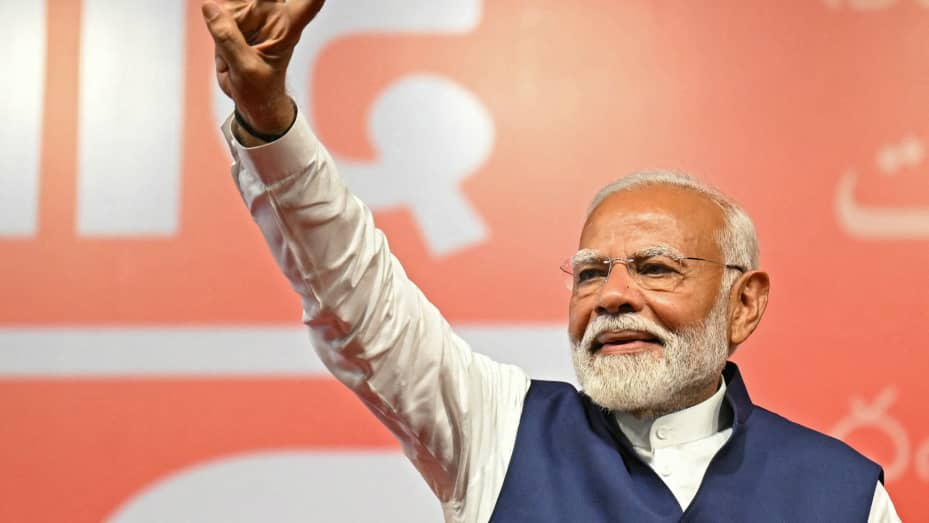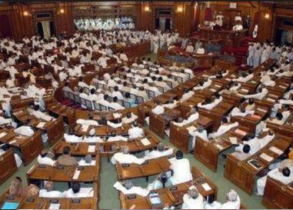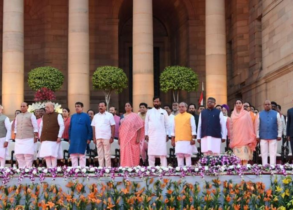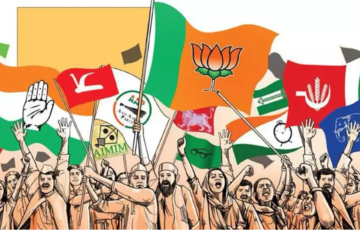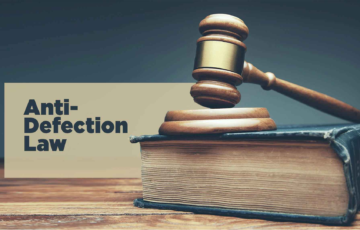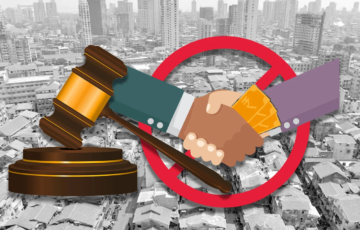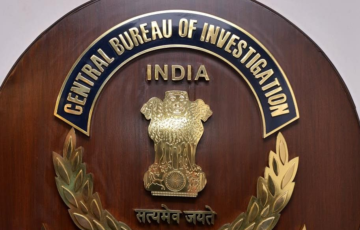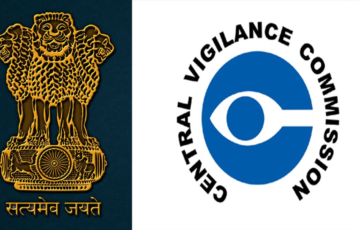PRIME MINISTER OF INDIA
Introduction
- The Prime Minister of India is indeed the head of government and the real executive of the Indian political system. This means that the Prime Minister is the leader of the government and holds significant executive authority.
- Article 74: Article 74 of the Indian Constitution establishes the Council of Ministers with the Prime Minister at its head. This council is responsible for aiding and advising the President in the exercise of their functions.
- Article 75: Article 75 outlines the following key points:
- The President appoints the Prime Minister.
- Other ministers are appointed by the President, but this appointment is made on the advice of the Prime Minister. This is a critical aspect of the parliamentary system, as it means that the President is largely a ceremonial figurehead in this context, while the real executive power rests with the Prime Minister and their council of ministers.
- Ministers hold their offices at the pleasure of the President, meaning they can be dismissed by the President on the advice of the Prime Minister.
- The Council of Ministers is collectively responsible to the Lok Sabha, which is the lower house of the Indian Parliament. This means that the Council of Ministers, including the Prime Minister, is accountable to the elected representatives of the people.
- Article 78: Article 78 stipulates that the Prime Minister is responsible for communicating all decisions of the Council of Ministers to the President. This ensures that the President is informed of the government’s actions and decisions. Additionally, the President can seek the advice of the Council of Ministers on various issues, which is typically done on the recommendation of the Prime Minister.
Appointment
- Appointment by the President: The Prime Minister of India is appointed by the President. This appointment is made in accordance with the norms of the parliamentary form of government.
- Majority Party Leader: In most cases, the President designates the leader of the majority party in the Lok Sabha as the Prime Minister. This is a fundamental principle of parliamentary democracy where the leader of the party with the most seats in the lower house of Parliament becomes the Prime Minister.
- No Clear Majority: In the event that no party or coalition has a clear majority in the Lok Sabha, the President has the discretion to select and appoint the Prime Minister. Typically, the President selects the leader of the largest party or coalition in the Lok Sabha and instructs them to seek a vote of confidence in the House within a month.
- Use of Discretion: The President used this discretion for the first time in 1979 when Charan Singh was appointed as Prime Minister after the fall of the Janata Party administration led by Morarji Desai.
- Change of Leadership: If the governing party elects a new leader after the death of an existing Prime Minister, the President is obligated to appoint the new leader as the Prime Minister. This was evident when Rajiv Gandhi was appointed as Prime Minister after the death of Indira Gandhi.
- Choice of Parliament House: According to the Indian Constitution, the Prime Minister may be a member of either of the two Houses of Parliament, the Lok Sabha (House of the People) or the Rajya Sabha (Council of States). Some Prime Ministers have been members of the Rajya Sabha, such as Indira Gandhi, H.D. Deve Gowda, and Manmohan Singh.
| Qualifications | · He must be a citizen of India.
· He must be a member of either Rajya Sabha or Lok Sabha at the time of taking oath or should be a member of any house within six months. · He should have completed his 30 years if he is a member of the Rajya Sabha or can be 25 years of age if he is a member of the Lok Sabha |
| Oath or Affirmation of the Vice-President | · Before entering upon his office, the Prime minister has to make and subscribe to an oath or affirmation.
· The President of India administered the oath of office to the Prime Minister |
| Terms of Office | · The term of office of the PM is not fixed.
· The Prime Minister holds office during the pleasure of the President. · President can’t dismiss the PM, he can hold the position till he enjoys the majority in the Lok Sabha, · He must resign if he loses the confidence in Lok Sabha. |
Powers and Functions
With Reference to Council of Ministers
- Appointment of Ministers: The Prime Minister recommends individuals to the President for appointment as ministers in the Council of Ministers. This includes selecting and proposing individuals to hold various ministerial positions.
- Portfolio Allocation: The Prime Minister has the authority to appoint ministers to specific portfolios or ministries. This means that the Prime Minister determines which minister is responsible for which area of government, such as finance, defense, or foreign affairs.
- Chairman of the Cabinet: The Prime Minister serves as the chairman of the Cabinet and presides over Cabinet meetings. The Cabinet is the collective decision-making body of the government, and the Prime Minister plays a crucial role in leading and guiding these discussions.
- Enforcement of Judgment: If there is a significant difference of opinion among Cabinet members, the Prime Minister has the authority to enforce their judgment. This means that the Prime Minister can ultimately make the final decision on important matters.
- Request for Resignation: The Prime Minister has the power to ask for the resignation of any minister. This enables the Prime Minister to maintain control over the composition of the Council of Ministers.
- Guidance and Control: The Prime Minister plays a pivotal role in guiding, directing, controlling, and coordinating the activities of all ministers within the government. This ensures the effective functioning of the government as a whole.
- Resignation’s Impact: If the Prime Minister were to resign from their office, the Council of Ministers would also collapse. This underscores the Prime Minister’s central role in the government’s functioning.
- International Representation: The Prime Minister serves as the official representative of the country at high-level international gatherings. This role involves representing India’s interests on the global stage and participating in international diplomatic engagements.
In Relation with the President
- Chief Advisor: The Prime Minister serves as the principal channel of communication between the President of India and the Council of Ministers. This means that the Prime Minister plays a central role in conveying information, decisions, and advice between the two entities.
- Advisor to the President: In addition to being the head of the government, the Prime Minister acts as the chief advisor to the President. The Prime Minister provides guidance and advice to the President on various matters of governance and administration.
- Communication of Decisions: The Prime Minister is responsible for communicating the decisions of the Council of Ministers regarding the administration of Union affairs and proposals for legislation to the President. This ensures that the President is informed of government actions and legislative initiatives.
- Advice on Key Appointments: The Prime Minister also advises the President on the appointment of various important officials, including but not limited to:
- Attorney General: The government’s chief legal advisor.
- Comptroller and Auditor General (CAG): Responsible for auditing government accounts and finances.
- Chairman and members of the Union Public Service Commission (UPSC): Responsible for civil service recruitment and examinations.
- Chairman and members of the Finance Commission: Responsible for recommending fiscal policies and financial allocations.
With Respect to Parliament
- Leader of the Lower House: The Prime Minister is the leader of the Lok Sabha, which is the lower house of the Indian Parliament. In this role, the Prime Minister leads the government’s representation in the Lok Sabha, interacts with its members, and plays a key role in shaping legislative initiatives.
- Recommendation on Sessions: The Prime Minister can recommend to the President the proroguing (ending) and summoning (convening) of sessions of the Parliament. This recommendation helps in managing the legislative calendar and convening sessions as necessary.
- Recommendation for Dissolution: The Prime Minister has the authority to recommend the dissolution of the Lok Sabha to the President. Dissolution leads to the calling of new elections and the formation of a new Lok Sabha.
- Announcement of Government Policies: The Prime Minister is responsible for announcing the policies and initiatives of the government on the floor of the houses, including the Lok Sabha. This is a crucial aspect of parliamentary democracy, as it allows the Prime Minister to communicate the government’s agenda to the legislature and the public.
Miscellaneous
- Chairmanship of Key Bodies: The Prime Minister serves as the chairman of several important bodies, including NITI Aayog (which succeeded the Planning Commission), the National Integration Council, the Inter-State Council, the National Water Resources Council, and other institutions. This underscores the Prime Minister’s leadership in various aspects of governance and policy.
- Shaping Foreign Policy: The Prime Minister plays a significant role in shaping India’s foreign policy. They represent the country on the international stage, conduct diplomatic relations with other nations, and contribute to the formulation of foreign policy objectives.
- Chief Spokesperson: As the chief spokesperson of the Union government, the Prime Minister communicates government policies and decisions to the public and the media. They serve as the primary interface between the government and the citizens.
- Crisis Management: In times of emergencies and crises, the Prime Minister is the political leader who takes charge of crisis management at the highest level. This may involve responding to natural disasters, security threats, or other critical situations.
- Interaction with the Public: The Prime Minister, as the leader of the nation, engages with various segments of the population in different states. They receive memoranda and feedback from citizens, addressing their concerns and issues.
- Leader of the Party: The Prime Minister is not only the head of government but also the leader of the political party in power. This dual role as the head of government and the party leader gives the Prime Minister significant political authority and influence.
Limitations to The Power of Prime Minister
- Vote of No Confidence: Members of Parliament have the authority to pass a vote of no confidence if they believe the Prime Minister is not meeting their expectations or the aspirations of the public. If a vote of no confidence is successful, the Prime Minister must resign. This fear of losing power serves as a significant check on the Prime Minister’s powers.
- Party Ideology and Policies: The Prime Minister is typically a member of a political party with its own ideology and policy agenda. As such, the Prime Minister is expected to adhere to and implement the policies and manifesto of the party. Acting outside the party’s principles can have political consequences.
- Advice from the Head of State: The Head of State, often a President or monarch, may provide advice or draw attention to important national issues for the Prime Minister. While the Head of State’s role is largely ceremonial, their input can influence the Prime Minister’s decisions.
- Public Opinion: The Prime Minister can be influenced by public opinion, especially when introducing policies that are met with public opposition. Being accountable to the public and wanting to avoid negative public sentiment can serve as a constraint on the Prime Minister’s actions.
Shah Commission Report
- The Shah Commission Report is an important document in the history of India that sheds light on the excesses committed during the Indian Emergency of 1975-77, which was a period of suspended civil liberties and authoritarian rule. The report had significant findings and implications:
- Background: The Indian Emergency was declared by Prime Minister Indira Gandhi in 1975, citing internal disturbances as the reason. During this period, civil liberties were curtailed, political opponents were arrested, and there were allegations of abuse of power.
- Shah Commission Inquiry: To investigate the excesses and abuses of power during the Emergency, the Government of India appointed the Shah Commission in 1977. Justice J.C. Shah chaired the commission.
- Findings: The Shah Commission’s report found that the decision to impose the Emergency was made solely by Prime Minister Indira Gandhi, without the consultation of her cabinet colleagues. Furthermore, the report stated that the Emergency was not justified.
- Lokpal’s Jurisdiction: In response to such episodes of alleged misuse of power, the institution of Lokpal (Ombudsman) was established in India to investigate allegations of corruption against public officials, including the Prime Minister.
- Limitations on Lokpal: The Lokpal has jurisdiction to inquire into allegations of corruption against anyone who is or has been Prime Minister. However, there are limitations when the allegations relate to international relations, external and internal security, and public order. In such cases, a full Bench of the Lokpal, consisting of its chair and all members, must consider initiating a probe, and at least two-thirds of the members must approve it. This provision is in place to balance the need for accountability with the requirements of national security and diplomatic considerations.
Chief Minister Who Became Prime Ministers
- Morarji Desai (Chief Minister of Bombay from 1952 to 1956)
- Charan Singh (Chief Minister of Uttar Pradesh from 1967 to 1968 and again in 1970)
- V. P. Singh (Chief Minister of Uttar Pradesh from 1989 to 1990)
- P. V. Narasimha Rao (Chief Minister of Andhra Pradesh from 1971 to 1973)
- H. D. Deve Gowda (Chief Minister of Karnataka from 1994 to 1996)
UPSC PREVIOUS YEAR QUESTIONS
1. The Prime Minister of India, at the time of his/her appointment: (2012)
(a) Need not necessarily be a member of one of the Houses of the Parliament but must become a member of one of the Houses within six months
(b) Need not necessarily be a member of one of the Houses of the Parliament but must become a member of the Lok Sabha within six months
(c) Must be a member of one of the Houses of the Parliament
(d) Must be a member of the Lok Sabha

